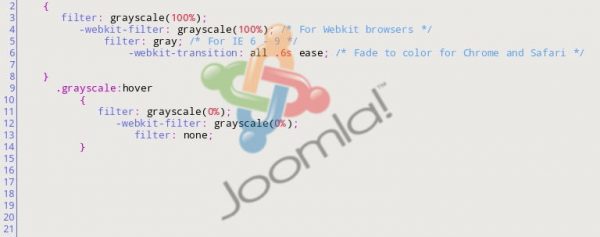Creating your own Joomla extensions, modules, and templates is a rewarding process that can help you customize websites and even earn money by selling your products. Coding for Joomla is often done through writing PHP, HTML, and other languages that aren’t incredibly hard to master. Read through these secrets of Joomla coding to get started making your own Joomla products, extensions, and themes.
Joomla Coding for Beginners

Joomla is a PHP based Content Management System and most code written for it will be best done in PHP. There are times when HTML and other scripts languages are useful, however, and this can help get you started if you’re new to coding or creating for CMSs.
Before you get into any heavy coding for Joomla you should install the CMS on a web or local server and learn how the article, module, and extension functions work. Try creating new Joomla articles to add your own HTML to or customizing existing module functions by changing the placement they’re arranged in on the frontend.
These options and settings can be all found in the default administrator section of your Joomla installation. Take notice of how the global configuration differs from the configuration settings you’ll find in each article or section of your website, as this will be helpful to know when you go to create your own custom PHP for Joomla.
To get started coding in Joomla you should download a template from the official Joomla Templates repository and browse through the lines of PHP, HTML, and CSS in each template file. The primary file for each template is typically labeled index.php and can be opened using Notepad or a PHP editor like NetBeans.
Once you’ve had a look at the lines of code in your Joomla template files you will be prepared to start editing code to achieve a specified purpose. Try changing out some of the colors and width variables in the style.CSS sheets, and adding functionality to the PHP files with PHP commands. You can add and edit HTML in the main template files to achieve modifications and added features as well.
Coding for Joomla in PHP
Once you’ve familiarized yourself with the basic format and structure of Joomla’s PHP coding you can begin to make your own PHP to add functions to a Joomla template or website. Find a Joomla hosting plan for testing and development purposes and download an IDE for creating PHP. It’s ideal to get an optimized Joomla hosting account so that you don’t have to worry about errors on a web server appearing as errors in your code.
Decide what you’re going to make for use with the Joomla CMS. It’s a good idea to start with a simple module or extension, like this clock widget that can display the date and time on a site’s frontend.
If you’re a more advanced coder or have a handle on JavaScript and other web languages you can create your apps and extensions in your preferred language by using custom code extensions.
Making Useful Joomla Products
When setting out to code in Joomla, make sure your not reinventing the wheel by checking the official Joomla Extension Directory before getting started. Search the directory by keyword or browse through the category to get an idea of what kind of products are already on the market.
Once you’ve thought of an improved product or new, useful Joomla extension or module, make your development plan for its creation. Decide if the product will be made using PHP, and what the end user will gain from using your code. After coding the app or product you will need a decent marketing plan and description, so you can submit it to the Joomla directories and others can find it.
Making Money with Joomla Coding
There are several ways to earn money coding for Joomla. One of the most popular ways to profit from Joomla’s popularity is by creating templates for websites and blogs. You can set up your own website to sell Joomla templates, or submit them to the official Joomla template directory. Some third-party template sites might also be interested in re-selling your templates.
Making Joomla modules and extensions to sell or share with others can also be rewarding. Follow this guide for creating Joomla modules to learn how to develop your own custom, useful modules. Such modules can be placed in virtually any template, so you’ll have a nearly unlimited market within the Joomla community if your module or extension is found to be valuable.
These tips and secrets to Joomla coding will help you create new and useful Joomla products like templates, extensions, widgets, and modules for your own websites or for commercial purposes. Don’t forget to check the already-rich Joomla directories to make sure you don’t waste your time creating a product that’s already on the market, or to look for ideas and existing extensions that you could improve upon.





